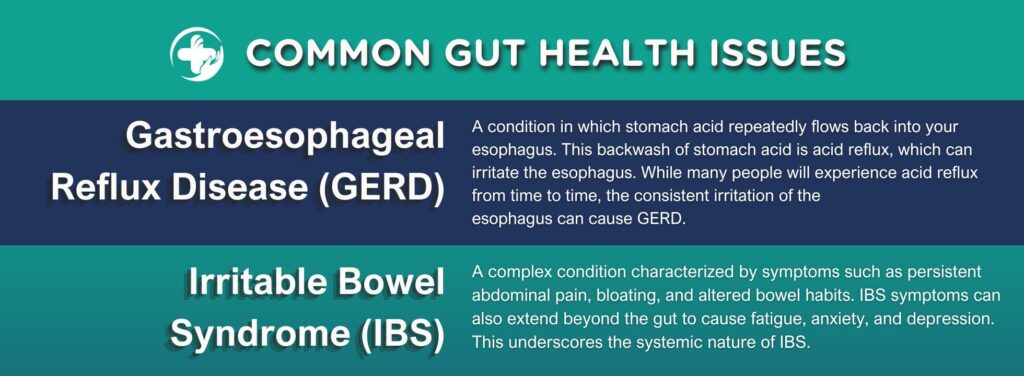
A healthy gut is foundational to your overall health, and it is intricately linked to the foods you eat. Gut health isn’t just concerned with digestion, your immune system and mental health can be affected by your gut as well. Maintaining balance in this complex ecosystem can lead to increased energy, improved mood, and better nutrient absorption.
What is Gut Health?
Gut health specifically refers to the well-being of your digestive system, which is responsible for breaking down food, absorbing nutrients, and eliminating your body’s waste. The gut microbiome is home to trillions of microorganisms–including bacteria, viruses, and fungi–that help maintain balance in your body.
The Gut-Brain ConnectionThe “gut-brain connection” refers to the close relationship between your brain and your stomach–emotions like anger and anxiety can manifest themselves as physical symptoms in your gut. This is why we must consider the role of stress and anxiety in our lives when we experience discomfort or unexplained symptoms regarding the gut.

Common Gut Health Issues
- Gastroesophageal Reflux Disease (GERD): a condition in which stomach acid repeatedly flows back into your esophagus. This backwash of stomach acid is acid reflux, which can irritate the esophagus. While many people will experience acid reflux from time to time, the consistent irritation of the esophagus can cause GERD.
- Irritable Bowel Syndrome (IBS): a complex condition characterized by symptoms such as persistent abdominal pain, bloating, and altered bowel habits. IBS symptoms can also extend beyond the gut to cause fatigue, anxiety, and depression. This underscores the systemic nature of IBS.
The Role of Diet and Lifestyle in Gut Health
There are many factors that can upset the gastrointestinal (GI) tract, including some lifestyle habits. A low-fiber diet, insufficient exercise, and high stress levels can all lead to GI issues. Consuming high amounts of dairy, sudden changes in your routine (such as traveling), and certain medicines can also have adverse effects on gut health. If you experience persistent discomfort or other GI symptoms, you should consult your physician.

Tips for Improving Gut Health
- Eat Healthy: Making dietary changes, such as finding more sources of fiber intake and reducing dairy consumption, can have some of the most immediate benefits for improving gut health.
- Stay Hydrated: Sufficient water intake, as part of a healthy diet, has been shown to contribute toward a healthy gut microbiome by supporting processes such as waste removal
- Exercise Regularly: For adults, at least 150 minutes of moderate aerobic activity per week, or at least 75 minutes of vigorous aerobic activity, is recommended. Try spreading your exercise throughout the week.
- Manage Stress: Stress can often manifest itself through symptoms in the gut, and seeking ways to reduce stress or anxiety triggers throughout the day can help mitigate this.
- Prioritize Sleep: For adults, at least 7 hours of sleep per night is recommended, and a lack of sleep can disrupt your body’s regulatory processes, which can have adverse effects on many of your internal systems.
If you have immediate health concerns, please reach out to your primary care physician. If you are concerned about your gut health or GERD-related symptoms or think you might be at risk, contact us today to see how we can help you. Please reach out at (662) 844-5344. Our team is dedicated to providing the best level of care possible.










